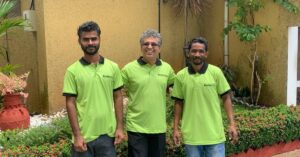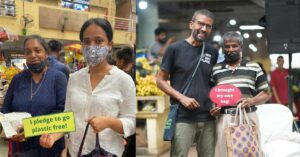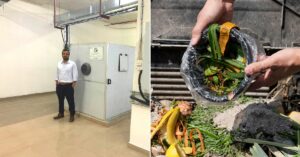3 Friends & A WhatsApp Group Teach Gardening & Composting to Thousands for Free
Three Bengaluru women share what prompted them to start Marali Mannighe, a WhatsApp group that shares lessons on how to compost, grow your own vegetables and more to thousands across the world.
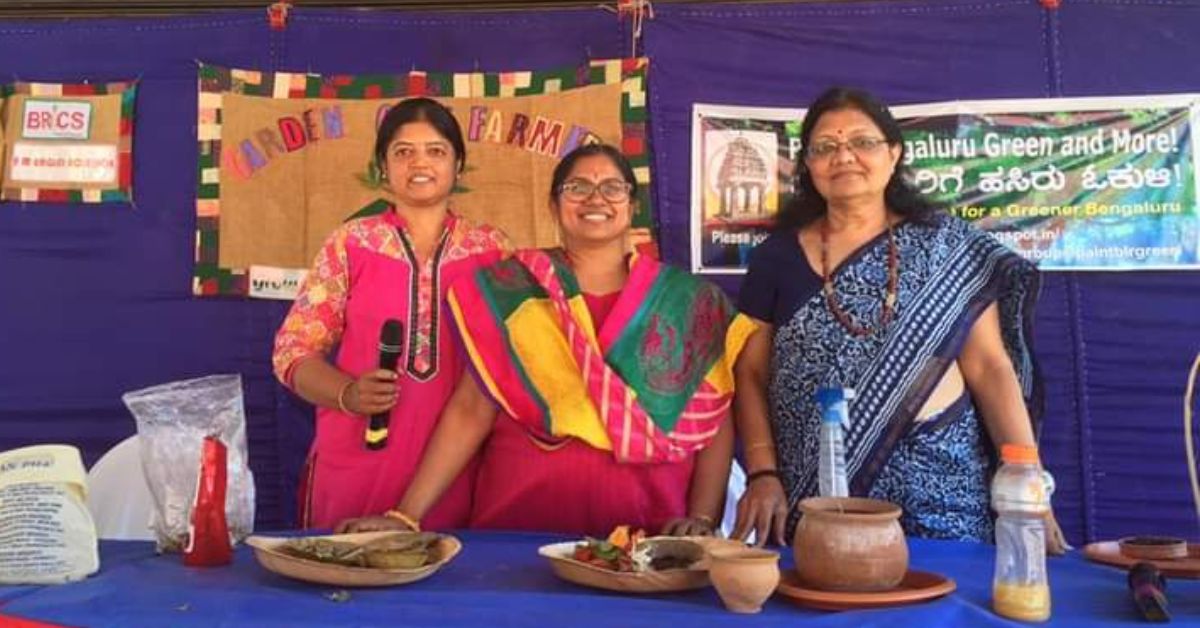
For Mumbai resident Amol Palshetkar, Friday mornings bring a different kind of joy. When the day begins, he is among the thousands who sit down to learn composting, potting and more, all through WhatsApp.
The group, Marali Mannighe, means ‘back to soil’, and true to its name, imparts knowledge to several budding enthusiasts on how they can start their own gardening journeys through lessons in composting, terrace gardening, etc.
Amol says, “My experience of learning aerobic composting has been very informative. All possible problems and solutions were explained in a step-by-step systematic way.”
Behind this urban gardening movement are Bharathi Aswath, Shubha Govindachar, and Priya Srinivasan, who took their love for gardening and nature to guide over 24,000 in areas of composting and vegetable gardening.
While the trio would earlier conduct offline workshops, they soon realised many could not attend due to time and travel constraints. So they put their heads together and came up with a mode of learning that not only offered ease of use but was also a part of people’s daily lives.
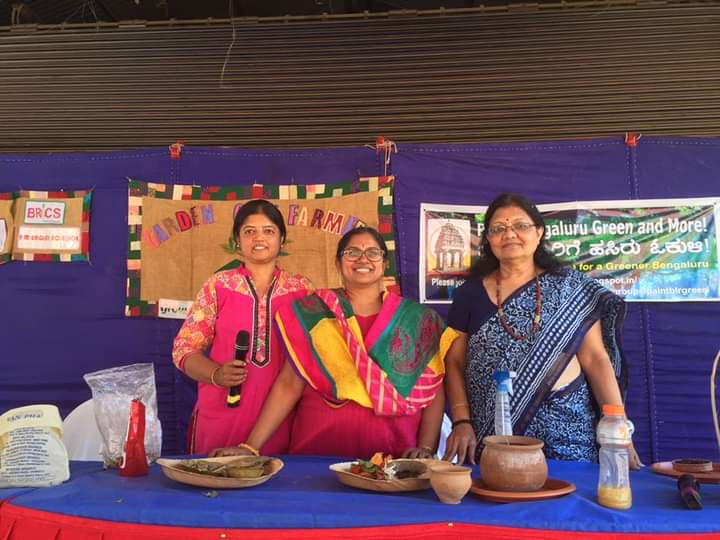
Learn composting through WhatsApp!
“As people are growing increasingly conscious of the quality of produce they consume, it has heralded a new wave in the grocery scene. People these days would love to spend time preparing and using compost in their gardens. Eating the vegetables you grow is a luxury unlike any other,” says Bharathi.
The friends started their very first group in June 2017.
Shubha explains, “It was tricky to break down the entire process into smaller steps that could then be easily communicated using WhatsApp to people all over the world. When we started off, there was a lot of experimentation. For instance, tailoring the video size to fit upload criteria, adding audio to the videos for clarity, etc. But we managed to get it right eventually.”
And how does the initiative work?
“On the 8th of every month, we announce our new session and add a link for people to join the group. Over the next couple of days, the group begins filling up. Sometimes it reaches its capacity within an hour,” notes Bharathi.
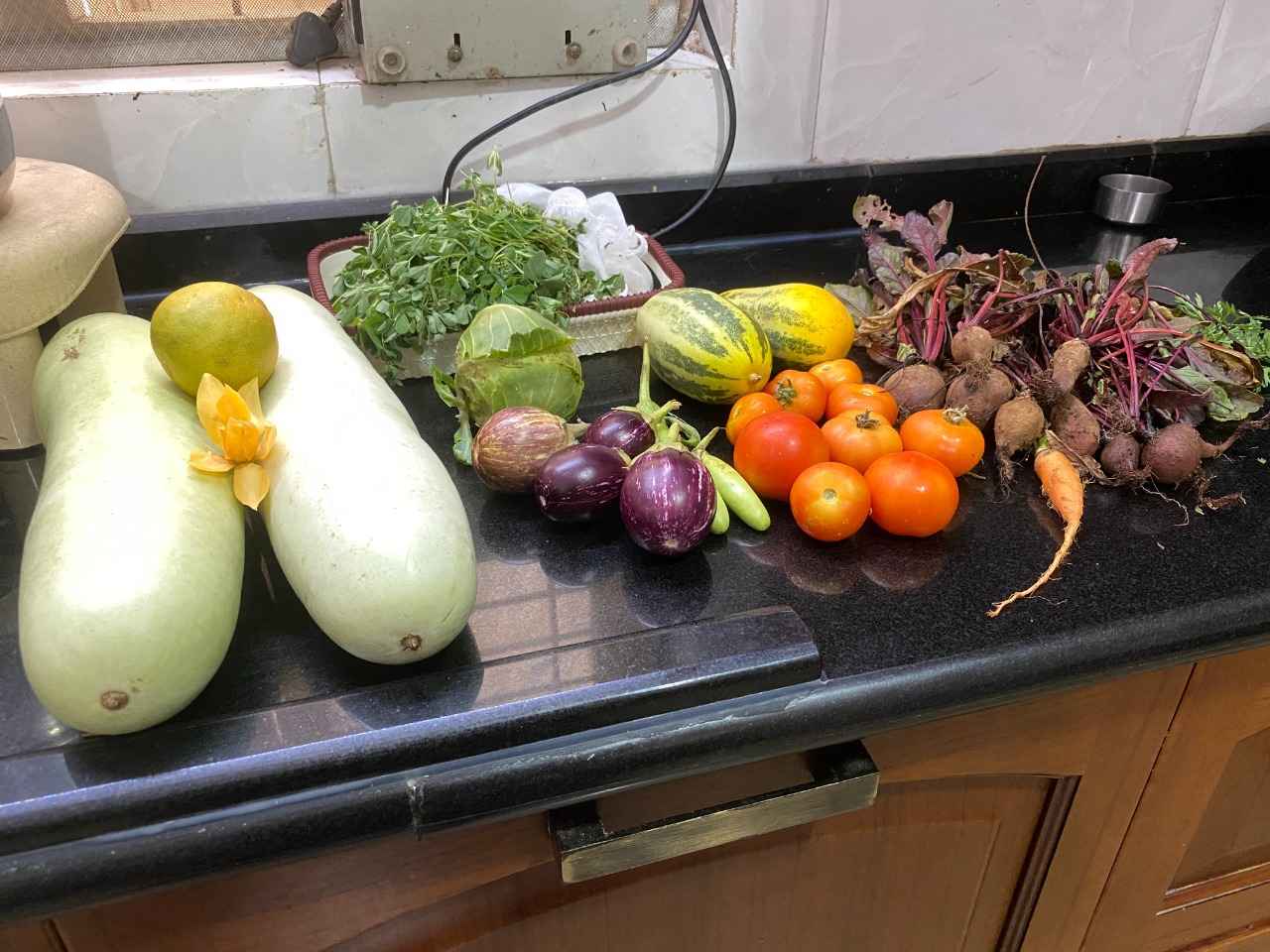
The session goes on for five days, during which videos, presentations, and PDFs prepared by friends are shared with the group.
“We handhold the participants throughout their composting journey and detail pointers such as what is composting, how to proceed with making the first mix, etc. All the videos are shot by us,” says Bharathi. The participants are then encouraged to watch, replicate and come back with their doubts.
The friends add that the success of the initiative is reflected in its wide reach.
“When we started off initially, we had people from Bengaluru joining in, but now word has spread and people from across India — Andhra Pradesh, Tamil Nadu, Kerala, Gujarat, Pune, Maharashtra, Delhi, Uttar Pradesh — and even overseas — UAE, France, USA, England, Australia, Singapore, Bangkok, Malaysia — join in,” says Bharathi.
But she notes that what sets them apart is not only their ingenious way of teaching but also the fact that their tips cater to city folk, who may be amateurs when it comes to composting.
Useful hacks to make composting fun
“Make mistakes and go wrong,” she encourages in her videos, adding that the intention of the WhatsApp group is to have people understand the nitty-gritty of composting. “It’s only when they go wrong that they will come back and ask why, and then learn the right way.”
Another challenge that the friends encountered was the rise of commercially available compost kits, which are fairly expensive
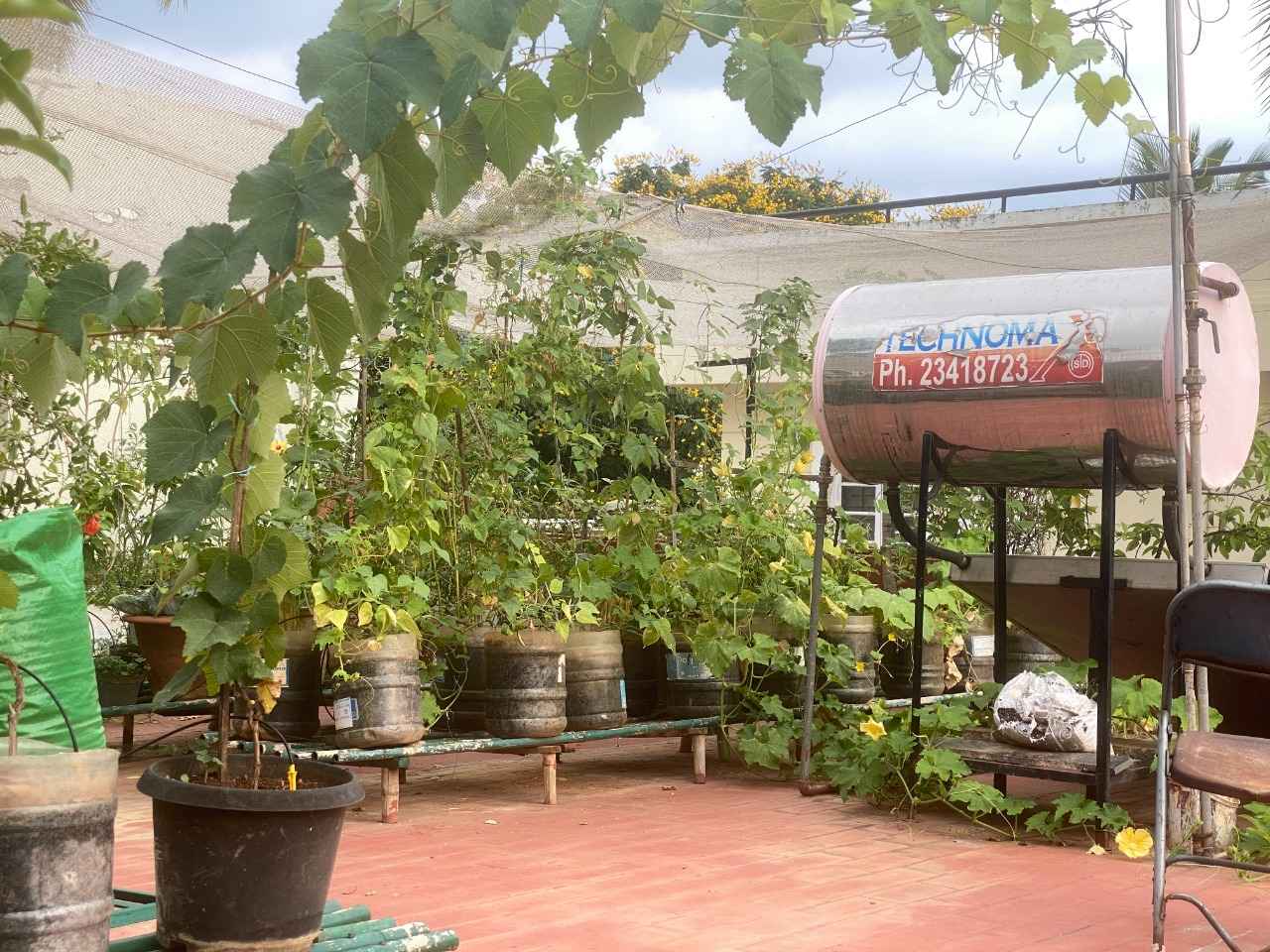
“Our participants usually joke that if the process of composting is going to cost them so much, they would rather let their waste remain waste. So, we provide them with alternatives,” says Priya.
As participants learn through the course of the five days, everything they need for composting can be found in the kitchen.
“For composting you need three things — carbon, nitrogen and microbes. Kitchen waste is abundant in nitrogen. For carbon, crushed leaves, faded newspapers and cardboard can be used instead of purchasing coco peat from the market. Similarly, instead of purchasing microbial cultures, you can add buttermilk which is abundant in lactobacillus,” Bharathi adds.
These and other such tricks are what make the sessions engaging and exciting. The groups are kept active for a total of 30 days to align with the time taken for compost to be ready.
Seeing the results of their composting, people began requesting friends for similar sessions on vegetable gardening.
They were more than happy to oblige.
Make compost. Use it in your own garden!
But as they soon realised, training people to grow their own gardens was not as easy as it was teaching them composting, which is a step-by-step process. This is because different vegetables need different growth conditions.
So, the trio decided to focus on the basics and then move ahead from there.
Bharathi explains, “The course on vegetable gardening spans five days. During this time students are familiarised with the basics of vegetable gardening, how to sow seeds, how to prepare the potting mix, protect the plants against pests, etc. Once participants feel confident with these aspects, they go on to address topics such as homemade pesticides, fertiliser, etc.”
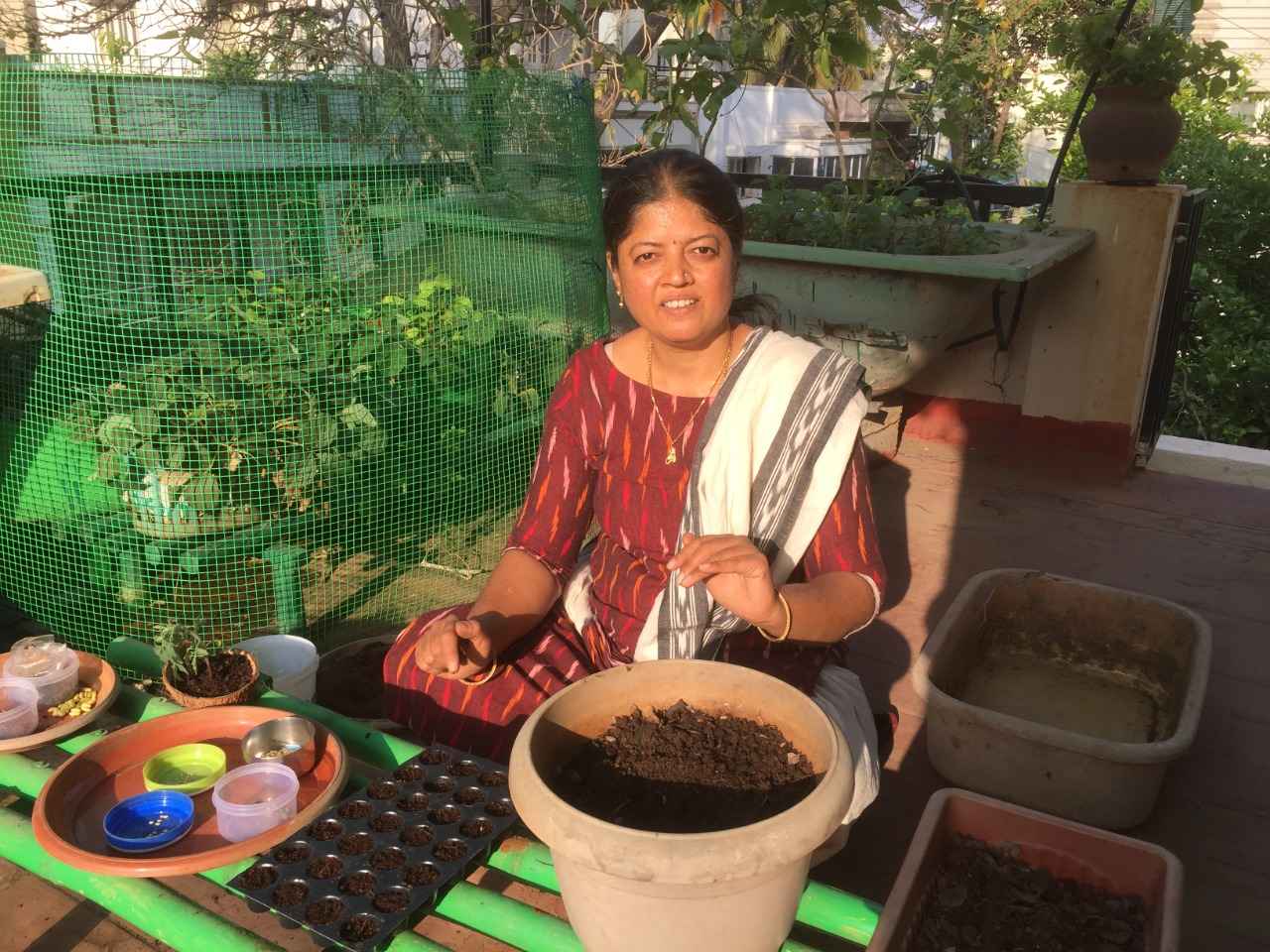
She adds that one of the most common pesticides that they teach participants to prepare is the 3G mix — made with ginger, garlic and green chillies, crushed and soaked in water. Another is neem oil mixed with soap and water.
The friends noticed during the sessions that people from bigger cities were often not comfortable with, or able to procure cow dung and cow urine. So they introduced a novel substitute.
Bharathi explains, “All you need to do is insert a bag of compost into the water and continuously run aqua stones until bubbles are generated. This process multiplies the microbes in the compost. Jaggery is then added to the water and the set-up is left for 72 hours. The result is a mix abundant in microbes, which can easily substitute cow dung.”
One of the participants, Umesh Kapadia from New Jersey, says he found the workshop on vegetable gardening “well designed”.
“The course was great with easy-to-understand videos and notes. I learnt a lot and wish more people would undertake this workshop and experience the beauty of having your own garden,” he notes.
Today, as the friends are flooded with messages from their participants along with pictures of their blooming gardens, they feel proud.
“Being one of the first initiatives of using a social media platform — that is primarily used for chatting — to impart knowledge, is amazing. We are able to reach all kinds of people such as housewives, busy professionals, students, and gardening enthusiasts and train them in every respect, right from the choice of DIY containers for compost to the end product and use,” adds Shubha.
Ask them if they foresee the venture growing in the time to come, and they affirm it.
“That’s the magic of gardening. Once you start, there is a whole new world to explore,” says Bharathi.
Edited by Divya Sethu
If you found our stories insightful, informative, or even just enjoyable, we invite you to consider making a voluntary payment to support the work we do at The Better India. Your contribution helps us continue producing quality content that educates, inspires, and drives positive change.
Choose one of the payment options below for your contribution-
By paying for the stories you value, you directly contribute to sustaining our efforts focused on making a difference in the world. Together, let's ensure that impactful stories continue to be told and shared, enriching lives and communities alike.
Thank you for your support. Here are some frequently asked questions you might find helpful to know why you are contributing?


This story made me
-
97
-
121
-
89
-
167




